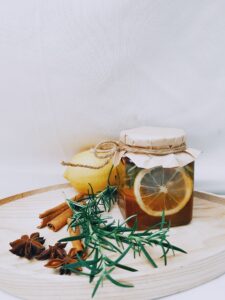Reading pretty much anything health-related these days may make you believe that all inflammation is evil and should be avoided at all costs. But, like most things in true healthcare (and not sick-care!), there is a balance.
INFLAMMATION IS NOT ALWAYS THE ENEMY!
On one hand, short-term inflammation is a very good thing. When you injure yourself, the body responds with increased heat, swelling and pain fiber activation in the local area. These reactions are normal and beneficial – the steps everyone must go through to bring the appropriate resources to the injury site and heal.
However, even low levels of long term or chronic inflammation is where you run into issues. Chronic inflammation is at least a piece of the puzzle in people dealing with weight gain, body pain, migraines, GI issues, depression/anxiety, sleep issues, fatigue and more. In a chronically inflamed state, the body is diverting resources that it should be using to maintain homeostasis in order to deal with the inflammation, and your health eventually suffers.
It would be like if there was a small fire in your kitchen every day – you would be spending a good amount of your energy and resources trying to put out that fire, while the rest of the house would slowly but surely fall into disrepair.
To continue with the analogy, anti-inflammatories would be like a cup of water to throw on the fire – great idea in theory and can be partially effective in the short-term, but if you are not dealing with what caused that fire to start and what continues to give it fuel, it will continue to burn.
The answer to dealing with chronic inflammation is the same: remove the fuel and give the body resources to put out the fire.
Let’s look at what is typically adding fuel to existing inflammation:
– Diet: What you are eating is having a big impact on your inflammation levels, positively or negatively. The most inflammatory foods tend to be the most processed: fast food, alcohol, sugar, white bread/pasta, lunch meat and most vegetable oils. Focus on eating whole foods, mostly plants to limit the amount of inflammation in your diet.
– Stress: Stress activates a fight or flight response from your nervous system, which down-regulates your immune system and digestive systems. When these systems are not operating at a high level for a longer period of time, waste starts to build up including the byproducts of inflammation. Stress must be actively managed in order to limit inflammation. Healthy stress relievers include breathing exercises, mindfulness meditation, yoga, acupuncture, and spending time in nature.
– Smoking: Thankfully the number of people smoking is continuing to decrease, but be aware that vaping, marijuana and even living in areas with poor air quality will have some impact on lung function and inflammation. The lungs are another key organ involved in waste removal so those with impaired lung function should make sure they are taking steps to remove inflammation from other areas.
– Exercise: The exercise you are engaged in could be adding to your inflammation or removing it. You are doing the wrong form of exercise if any of the following are true: you are exhausted after exercising, you are in pain during or after exercising, or you are not giving your body enough time to recover between sessions. Exercise should leave you with more energy and increase blood flow to your organs to promote better function. More is not always better!
– Infections, autoimmune conditions and other chronic health conditions: Many of these chronic health conditions prove to be especially challenging because they are exacerbated by inflammation to begin with and they can cause the body to create additional inflammation on top of that. Chronic health conditions require a personalized, integrative approach to effectively manage and treat, so the body can finally take the steps it needs to heal.
Taking steps to minimize unnecessary inflammation, while giving the body what it needs to appropriately deal with current levels of inflammation are the keys to your long term health!






